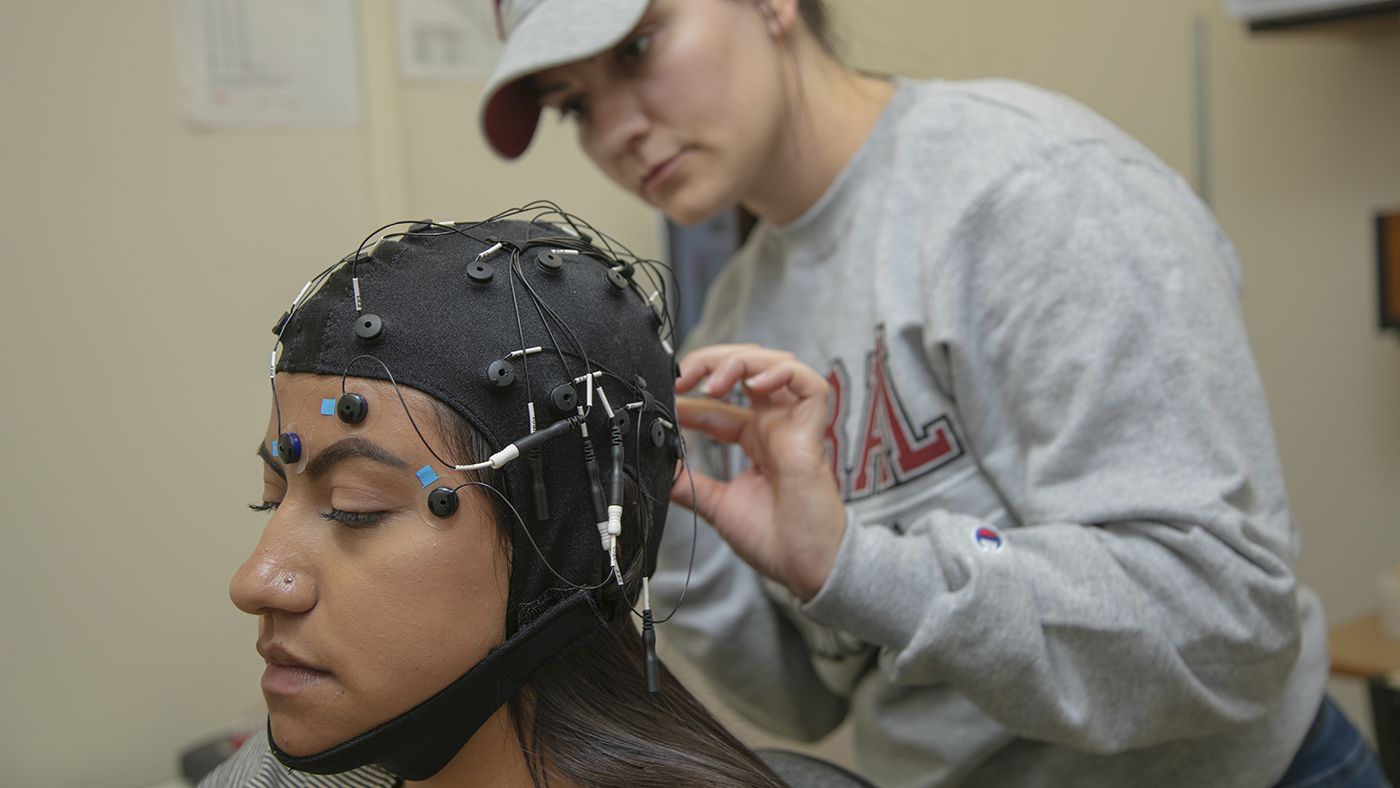
Psychology
Our Department's Mission and Program Outcomes
Central Washington University's Department of Psychology provides learning opportunities and experiences through which undergraduate and graduate students develop an understanding of the perspectives, content, methodology, and technology of the science of human and nonhuman behavior and mental processes.
Undergraduate and graduate programs prepare students for life-long learning and advanced study in psychology, as well as providing professional preparation for careers in research, business, industry, education, and social service.
The department is a major participant in the general education and undergraduate teacher education sequences of the university and provides selected courses for other majors and programs as appropriate to the discipline.
A master's degree is available in experimental psychology and a specialist degree is available in school psychology. The graduate professional preparation programs have a particular emphasis on helping students develop competencies in their fields.
Program Outcomes
The psychology major at CWU is based on several assumptions concerning the kinds of knowledge and skills that you ought to develop as a psychology major.
- There are certain areas within the discipline that are considered fundamental. We give high priority to ensuring that you will have opportunities to take courses in these areas. These include the following: physiological psychology, learning, cognitive psychology, social psychology, developmental psychology, personality, abnormal psychology, sensation and perception, and measurement.
- Advanced study in psychology requires critical thinking and reasoning skills. You develop these by working with quantitative information in courses in statistics and research methods and from reading original research reports.
- You should understand the language of the discipline and you should be able to write in that language, using elements of style, described in the Publication Manual of the American Psychological Association, that are standard in the field.
- You should be able to gather information from libraries, from computerized information systems, and other sources; and you should be able to synthesize this information into a knowledge summary or as the basis for a persuasive argument.
- You should be able to pose questions about behavior and select appropriate methods to answer those questions. You should understand psychological research strategies.
- You should know the history of the discipline and its place in the broader intellectual traditions of the humanities, sciences, and social sciences.
- You should know the ethical principles adopted by the American Psychological Association regarding the conduct of psychological services and research.
CWU News

Online Master’s of Education program now offers special education endorsement
May 15, 2024
by Rune Torgersen

Lenny Price brings Detroit perspective to CWU Jazz
May 15, 2024
by University Relations